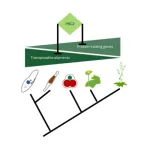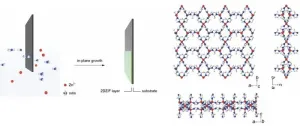Understanding the role of exceptional research as a driving force behind progress in its mission to end cancer, MD Anderson is proud to support World Cancer Research Day, Sept. 24, which calls for global efforts to promote cancer research in order to reduce the burden of this disease.
Recent developments at MD Anderson include identification of microbiome features associated with a common treatment side effect in patients with head and neck cancer, a novel target to overcome KRAS inhibitor treatment resistance, a new model to improve accessibility to genetic testing for low-risk populations, an epigenetic target to reprogram the tumor microenvironment and sensitize glioblastoma to immunotherapy, positive experiences among women able to avoid breast cancer surgery, insights into the relationship between the gut microbiome and melanoma progression, and positive results from a Phase I trial of vibecotamab for relapsed/refractory acute myeloid leukemia.
Read this press release in the MD Anderson Newsroom.
Study finds link between oral microbiome and common side effect in patients with head and neck cancer
Oral mucositis – the development of sores in the mouth – is a common side effect for patients with head and neck cancers, affecting as many as 90%. It can lead to difficulty eating, weight loss, and readmission or prolonged hospital stays to manage pain or infections. In a new study led by principal investigator Cielito Reyes-Gibby, DrPH, and co-corresponding author Christine Peterson, Ph.D, researchers investigated the influence of oral microbial features on the severity of oral mucositis during and after treatment for patients with squamous cell carcinoma of the head and neck. The research, part of an ongoing project to better understand the mechanisms behind oral mucositis, revealed associations of several specific microbiome features that both positively and negatively correlated with oral mucositis severity. These findings suggest the potential to personalize treatment plans with tailored microbiome interventions that could help minimize severity. Learn more in Cancer.
Study identifies alternate target for protein homeostasis to overcome KRAS inhibition treatment resistance
Oncogenic KRAS, one of the most frequently mutated genes in cancer, can drive tumor growth and proliferation. Multiple KRAS inhibitors have been approved for treating lung cancers with specific KRAS mutations, but most patients eventually develop resistance to these therapies. Therefore, Haoqiang Ying, M.D., Ph.D., and colleagues sought to better understand the mechanisms of resistance and to identify potential therapeutic targets. The researchers discovered that KRAS inhibition also inactivates protein regulation pathways, highlighting the role of oncogenic KRAS in protein quality control in tumor cells. Interestingly, protein homeostasis was restored when resistance to KRAS inhibitors developed. The researchers found this was due to activation of an alternate regulatory pathway in which the IRE1α protein sends a signal alerting the cell to misfolded protein accumulation, allowing for corrective action. The study uncovered that IRE1α could potentially be targeted pharmacologically to disrupt this rewiring of protein homeostasis and overcome resistance to KRAS inhibition. Learn more in Science.
New online care-delivery model aims to increase accessibility of genetic counseling and testing for cancer risk
Genetic testing for cancer risk can improve the prevention or treatment of hereditary cancers, but studies have shown that people who might have a genetic cancer risk often don’t get tested. The Making Genetic Testing Accessible (MAGENTA) trial aimed to improve availability of genetic testing for hereditary cancer syndromes using remote genetic testing and investigated whether the omission of genetic counseling would impact distress levels among women. In this study, led by Karen Lu, M.D., 3,839 women who were candidates for genetic testing received online information before being randomly assigned to receive either standard genetic counseling or no counseling. Researchers found no significant difference in distress levels after omitting pre-test counseling for all participants or post-test counseling for those without pathogenic variants. These findings offer a new model for care delivery, making genetic testing more convenient and accessible for a low-risk population. Learn more in JAMA Oncology.
Targeting KDM6B-mediated epigenetic machinery overcomes immunotherapy resistance in glioblastoma
Patients with glioblastoma (GBM), an aggressive brain tumor, tend to have immunosuppressive myeloid cell microenvironments that drive treatment resistance, contributing to a poor prognosis. However, targeting these myeloid cells has not led to meaningful clinical benefits, highlighting a need to examine alternative therapeutic strategies. Researchers led by Sangeeta Goswami, M.D., Ph.D., and Padmanee Sharma, M.D., Ph.D., both of the James P. Allison Institute, used single-cell RNA sequencing of GBM tumors and discovered high expression of KDM6B, an epigenetic enzyme involved in promoting gene transcription, in myeloid cell subsets. In lab models, KDM6B deletion in myeloid cell subsets enhanced pro-inflammatory pathways and improved survival in mice with GBM tumors. Additionally, pharmacological inhibition of KDM6B had similar outcomes and enhanced the effectiveness of immunotherapy. These results suggest further investigation is merited to evaluate KDM6B inhibition as an approach to epigenetically reprogram the tumor microenvironment and overcome myeloid cell-mediated immunotherapy resistance in GBM. Learn more in Nature Cancer.
Clinical trial finds women able to omit breast cancer surgery report positive experience
Previous research suggests some breast cancer patients who have a strong response to chemotherapy may be able to avoid surgery and receive only radiation treatment with a low risk of the cancer returning. To better understand the experiences of these patients, researchers led by Henry Kuerer, M.D., Ph.D., and Helen Johnson, M.D., analyzed how these patients felt over time. They discovered that this group of patients had an overall positive experience, felt more comfortable with their treatment decisions and saw improvements in their overall quality of life. These findings suggest that, for carefully selected patients, skipping surgery may not only be safe but also could offer potential benefits to their well-being. This study highlights the importance of personalized treatment approaches for breast cancer, considering each patient's unique needs and preferences. Learn more in JAMA Network Open.
Gut microbiome composition varies significantly across melanoma disease stages
The gut microbiome can influence how the immune system functions and how patients with advanced melanoma respond to immunotherapy, but this relationship previously was underexplored among early melanoma patients. To understand how microbiome profiles vary across the melanoma spectrum, Kelly Nelson, M.D., Russell Witt, M.D., and colleagues analyzed fecal microbiome samples from 228 participants, including 49 healthy individuals, 38 with early-stage melanoma, and 141 with late-stage melanoma. They discovered that individuals with melanoma had more Fusobacterium compared to those without melanoma. They also found that early-stage melanoma patients had a more diverse microbiome and more Roseburia than late-stage patients. This study suggests fecal microbiota profiles differ significantly across various stages of melanoma and when compared with healthy individuals. Further investigation of the relationship between gut microbiota and melanoma progression may inform future melanoma prevention interventions. Learn more in JAMA Dermatology.
Optimal dose of vibecotamab for treatment of relapsed/refractory AML identified
Treatment approaches for acute myeloid leukemia (AML) currently lack effective immunotherapy options. In a new Phase I study, researchers led by Farhad Ravandi-Kashani, M.D., evaluated vibecotamab’s safety, tolerability and maximum tolerated dose for use as a monotherapy in patients with relapsed/refractory AML. Vibecotamab, a humanized bispecific antibody, binds both CD3 and CD123 to recruit cytotoxic T cells to kill CD123-expressing tumor cells. The researchers identified the recommended Phase II dose as a three step-up dose followed by weekly treatments. This dosing strategy mitigated cytokine release syndrome while achieving responses, particularly in patients with low-blast count AML and low PD-1 expression. This study demonstrates the potential benefit of vibecotamab, which currently is being evaluated in a Phase II trial for patients with minimal residual disease-positive AML and in patients with myelodysplastic syndromes who did not benefit from hypomethylating agents. Learn more in Blood Advances.
In case you missed it
Read below to catch up on recent MD Anderson press releases.
MD Anderson expands breakthrough research campus with groundbreaking of innovative new facility Exercise boosts anti-cancer immunity and reduces inflammation in Lynch Syndrome patients Research identifies new potential hurdle for nano-based therapies Combination immunotherapy treatment effective before lung cancer surgery Intensity-modulated radiation therapy provides long-term benefits to patients with locally advanced lung cancer Enhanced recovery program successfully reduced opioid use after pancreatic cancer surgery MD Anderson and Panacea launch Manaolana Oncology to develop antibody-based therapies for cancer
– 30 –
END




